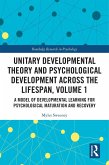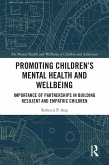Lawmakers and judges often enact and enforce laws and policies that impact youth. The extent to which these legal actions are sensitive to juveniles' perspectives and experiences has changed recently. Compared to an earlier time when juvenlies were treated the same as adults, many policies are now created with the needs of juveniles in mind, thanks in part to psychological studies that have revealed that the decision making, behavior, and cognitions of children vary drastically from those of adults. Unique in its angle and in the breadth of social issues it covers,
Psychology, Law, and the Wellbeing of Children brings together new research and analyses to address how legal actions affect children's wellbeing. It addresses how civil and criminal law has evolved to protect, and sometimes inadvertently neglect or harm, the wellbeing and development of children. Each chapter describes a law or policy affecting children, identifies the relevant psychological issues, reviews the research that has been conducted or should be conducted, and provides recommendations for professionals in law and/or psychology. With contributions from top researchers and practitioners in the field, chapters discuss many current debates, including issues such as gender-specific programming for juvenile delinquents, interrogations of juveniles, changes in divorce and custody procedures, programs for imprisoned mothers, and legal actions adopted to protect the health of children and society (e.g., HPV vaccinations, considering child obesity to be abuse). This book will be a vital resource for those interested in protecting the wellbeing of children, including academics and researchers in psychology, criminology, and sociology; practitioners such as judges, attorneys, forensic psychologists, psychiatrists, and social workers; and graduate and law students.
Dieser Download kann aus rechtlichen Gründen nur mit Rechnungsadresse in A, B, BG, CY, CZ, D, DK, EW, E, FIN, F, GR, HR, H, IRL, I, LT, L, LR, M, NL, PL, P, R, S, SLO, SK ausgeliefert werden.









